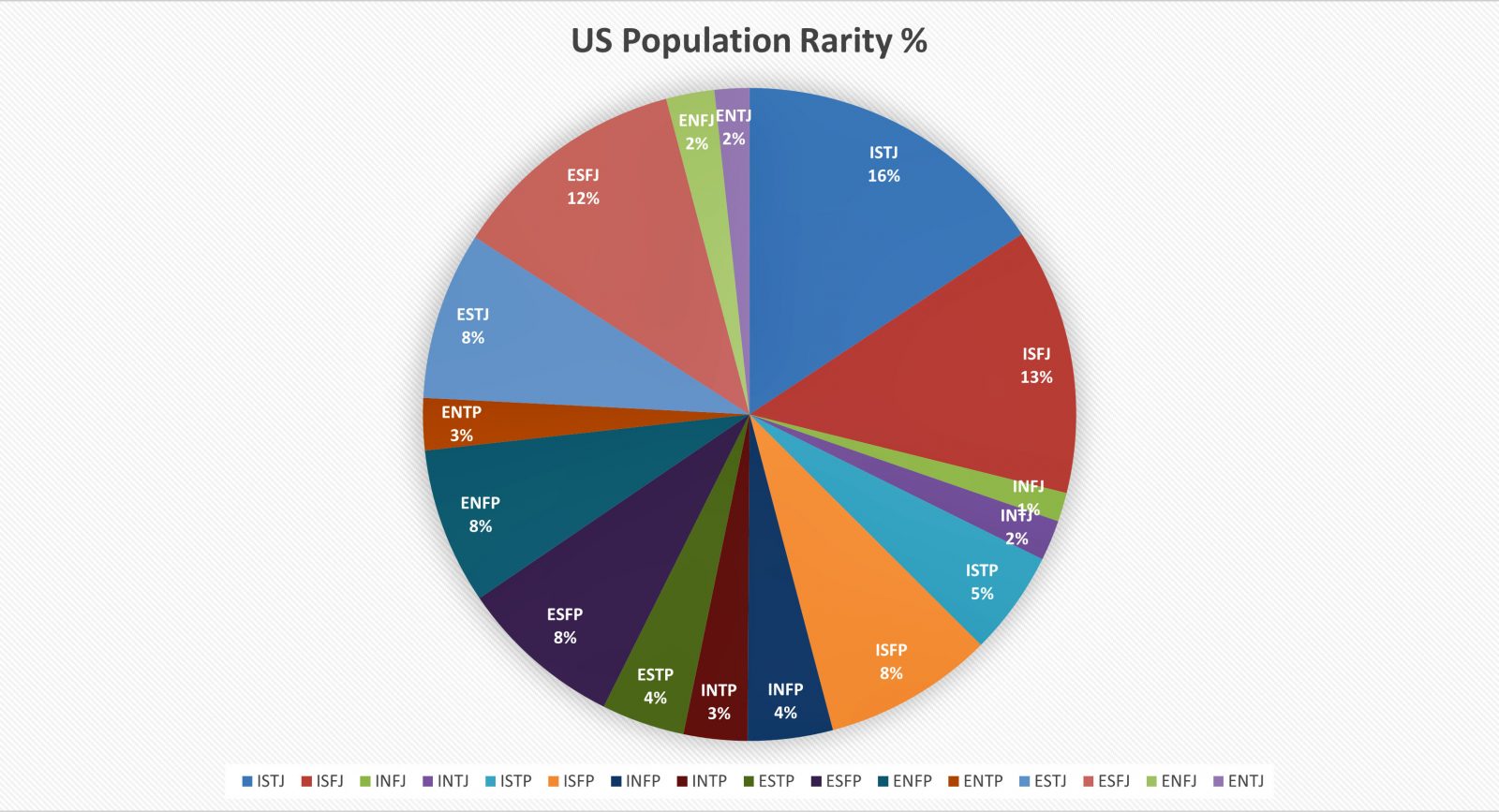The Myers-Briggs Type Indicator (MBTI) is a well-known and commonly used tool that helps to categorize individuals based on their unique psychological preferences. It is widely used in various organizations to get a better understanding of the personality types of their employees and to improve the performance of their teams. The main focus of this article is to delve into the rarity of each of the 16 personality types that the MBTI assesses.
What is MBTI
What is MBTI, and how does it work? MBTI is a self-reporting tool that helps individuals better understand their preferences and tendencies. It consists of a series of questions about an individual’s behavior and preferences in different situations. Based on the responses, the individual is categorized into one of the 16 personality types. Each type is denoted by a four-letter code, which represents the four dimensions of personality: Extraversion/Introversion (E/I), Sensing/Intuition (S/N), Thinking/Feeling (T/F), and Judging/Perceiving (J/P).
The Rarity of MBTI Personality Types
When thousands of people take the MBTI assessment, it becomes apparent that some personality types are more common than others. Through extensive research, it has been determined that the rarest 16 MBTI personality types are INFJ, followed by INTJ, INFP, and INTP. Conversely, the most common personality types are ISFJ, ESFJ, ISTJ, and ESTJ. Interestingly, research indicates gender differences in the rarity of certain personality types. For instance, the INTJ personality type is more commonly found among males, while the INFJ personality type is more common among females.
Why Are Some Personality Types Rarer Than Others?
Several factors can influence the rarity of a particular personality type. One of the main factors is the combination of the four dimensions of personality: extraversion/introversion, sensing/intuition, thinking/feeling, and judging/perceiving. For instance, the INFJ personality type is rare because it combines the traits of introversion, intuition, feeling, and judging, which are not expected. This unique combination of personality dimensions makes the INFJ personality type less common than other types.
Another factor that can influence the rarity of a personality type is social norms and expectations. For example, individuals who possess traits that are not socially acceptable may be more likely to score as a rare personality type. This is because social norms and expectations can affect an individual’s behavior and how they respond to the questions in the MBTI assessment. As a result, some individuals who possess uncommon traits may not answer the questions the same way as others, leading to a higher likelihood of scoring as a rare personality type.

Implications of Rare Personality Types
Individuals with rare personality types may experience challenges in social situations as they may feel misunderstood or isolated. This is because their personality traits may differ significantly from those of the majority, making it difficult for them to relate to others. Furthermore, it may be challenging for individuals with rare personality types to find others who share their interests and values, leading to loneliness and isolation.
However, possessing a rare personality type can also have its benefits. Individuals with rare personality types are often more creative, empathetic, and insightful than those with more common personalities. They have a unique perspective on life, enabling them to think outside the box and develop innovative solutions to problems. This creativity and empathy drive individuals with rare personality types to pursue unconventional careers and contribute uniquely to society.
In conclusion, although individuals with rare personality types may face challenges in social situations, their unique traits and strengths enable them to make valuable contributions to society uniquely. Therefore, it is essential to recognize and appreciate the diversity of personality types and the value they bring to our society.
Conclusion
This article provides a comprehensive overview of the rarity of the 16 MBTI personality types. Research showed that some personality types are rarer than others, and several factors can influence rarity. The article also highlighted the implications of having a rare personality type, both positive and negative.
By understanding the rarity of personality types, individuals can better understand themselves and others, which can help improve communication and team performance. It is crucial to recognize that individuals with rare personality types bring unique skills and strengths that can contribute positively to team dynamics.
Recognizing and understanding the diversity of personality types can lead to a more harmonious and productive work environment. Insights into the rarity of MBTI personality types emphasize the importance of valuing individual differences and working together effectively to achieve common goals.
